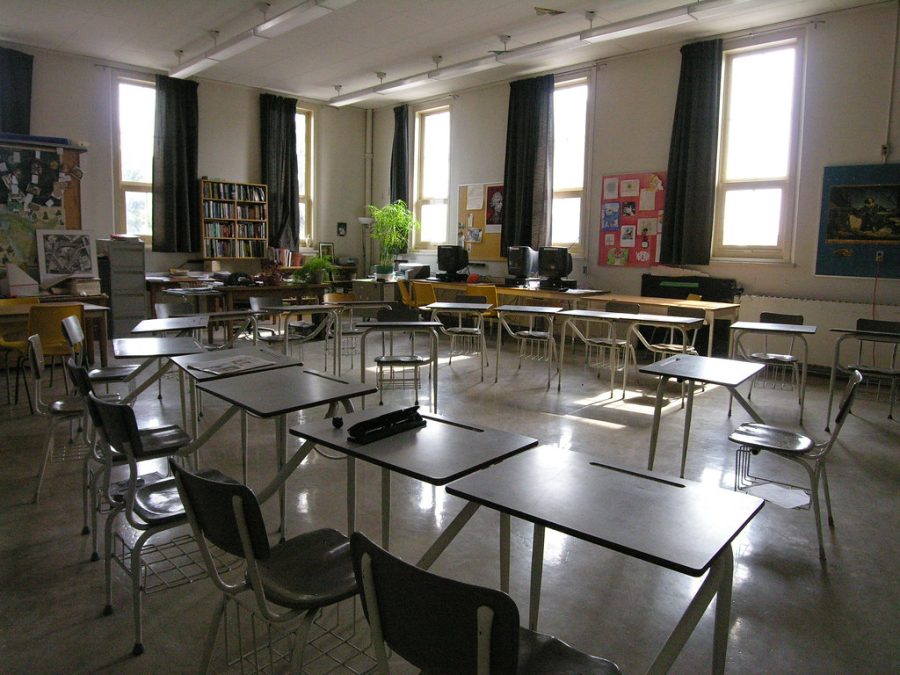Don’t tell the chefs how to cook: Thoughts from educators on the teaching shortage
November 2, 2022
Educators are incredibly valuable in the community.
Educators not only teach children, but provide for the socio-emotional needs of several children, not merely one, during the school day.
It is evident educators enter the field with an incredible passion for learning and teaching, but multiple factors may be rendering this quite difficult.
It is evident that the teaching shortage is a crisis, or a crisis-in-the-making.
Judi Harris, a lecturer in the Exceptional Education at Buffalo State, suggests that the media likely plays a role in the construction of a teacher shortage crisis.
James Cercone, an Associate Professor who also coordinates the English Education 7-12 program, notes that the media seems to be infatuated with producing negative stories related to education.
While it is clear that the teacher shortage exists for a variety of reasons, educators seem to note similar potential causes of an educator shortage of this magnitude.
Cercone pointed out that state testing and federal guidelines are the foundation of the teacher shortage.
“These ‘top-down’ measures turned many schools into test preparation sites and deprofessionalized teachers,” Cercone said.
It seems that this unacceptable transition to a powder keg is common in schools. Harris also mentions that pay scale such as underpayment in the teaching community and extensive certification requirements may factor into reasons the educator shortage exists.
As suggested by Harris, it is particularly noteworthy that the under-appreciation toward teachers is increasing the number of teachers who are leaving the profession.
The education system is such a valuable resource for society, and rather fragile. It is apparent that a common focus in determining potential causes of the teaching shortage include both underpayment and under-appreciation by society, though a number of other factors seem to exist.
Additionally, Cercone and Harris agree the educator shortage is extremely far-reaching, but particularly impacts urban and rural schools
Cercone added that the teaching shortage is “increasing the inequities that have always plagued public education.”
This suggests that the teacher shortage, ultimately, impacts all community members and requires drastic changes at the governmental level to ensure the education system can continue to function at an optimal level.
A number of solutions have been added to the table, though many of the solutions require policymakers to take immediate action to address the teaching shortage, and cease worrying about banning books, I might add.
In regards to solutions, both Cercone and Harris assert that increased pay is a possible starting point to stem the tide of the educator shortage.
Cercone, in particular, explained that providing teachers with autonomy as well as moving away from high-stakes testing and mandated curricula are two important steps in curtailing the teacher shortage.
Harris adds that improving the media coverage is an option to address the teacher shortage. She also said that changing the certification requirements may encourage pre-service teachers to continue in the field of education.
At the end of the day, young people and current teachers, need a stable and engaging environment to work in.
Again, this requires action from the state and federal government.
The teacher shortage is a problem and needs to be addressed immediately.
Fortunately, problems do have solutions, and with the consideration of thoughts from educators, it is clear that policymakers could implement a number of changes such as adjusting certification requirements and eliminating high-stakes testing.
Of course, the media could also support the efforts to increase appreciation of teachers, and community members could promote the need to appreciate teachers.
Responding to the educator shortage demands extensive actions across the board.
Educators want to teach, but when it becomes overly difficult due to policymakers or society in general, it renders the profession less enjoyable.
“Teaching is the greatest profession in the world, it is a vocation, everyone starts with a teacher; we are agents of change and have the opportunity to be a child’s quality world,” Harris said.




Mary Schmahl • Nov 4, 2022 at 3:45 pm
Not to mention the increasing danger of being a teacher. Attacks are on the increase, not just from their own students, but by intruders entering their school building. Attacks have ranged anywhere from verbal abuse, assault, or the use of weapons against teachers, either as a direct target or “collateral damage” in some sort of rampage.
While I don’t believe teachers should be armed, I do believe that better protection needs to be provided.